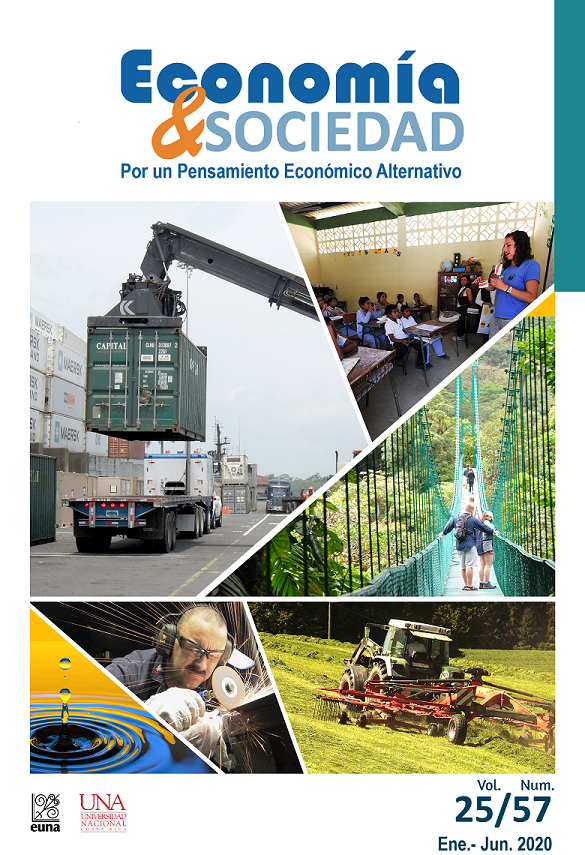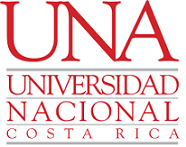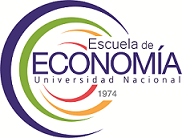Ethical dilemmas in the artificial intelligence scenario
DOI:
https://doi.org/10.15359/eys.25-57.5Keywords:
artificial intelligence, ethical dilemmas, technology autonomy, moralityAbstract
The importance of analyzing the malicious uses of artificial intelligence results is leading the current debate of studies conducted by academic institutions because of their negative implications in the social field. The purpose of this article is to rethink the ethical dilemmas under a digital society framework. Consequently, the important question here is how to eliminate the risks of the negative uses of technological developments. This study allows to identify the key points affecting the society in order to promote debate around the solutions. As the main conclusion, using epistemology to solve the social problems generated by the inadequate use of technology is above the technical nature and requires re-evaluating this phenomenon from a multidisciplinary approach, mainly focused on the cultural component.
References
Alves, M. (2020). The Natural Fallacy in a Post‐Truth era. A perspective on the natural sciences’ permeability to values. EMBO Reports, 21(2), 1-4. Doi: https://doi.org/10.15252/embr.201949859
Berberich, N., & Diepold, K. (2018). The Virtuous Machine - Old Ethics for New Technology? Recuperado de https://arxiv.org/abs/1806.10322
Boissier, O., Bonnet, G., Cointe, C., De Swarte, T., & Vallée, T. (2018). Ethics and autonomous agents. Building ethical collectives. Recuperado de https://ethicaa.greyc.fr/media/files/ethicaa.delivrable.5.pdf
Bossmann, J. (2016). Top 9 ethical issues in artificial intelligence. En World Economic Forum. Recuperado de https://www.weforum.org/agenda/2016/10/top-10-ethical-issues-in-artificial-intelligence/
Brundage, M., Avin, S., Clark, J., Toner, H., Eckersley, P., Garfinkel, B., … & Amodei, D. (2018). The Malicious Use of Artificial Intelligence: Forecasting, Prevention, and Mitigation. (Primera ed.). Future of Humanity Institute, University of Oxford, Arizona State University. Recuperado de https://arxiv.org/ftp/arxiv/papers/1802/1802.07228.pdf
Bryson, J. & Winfield, A. (2017). Standardizing Ethical Design for Artificial Intelligence and Autonomous Systems. Computer, 50(1), 116-119. Doi: https://doi.org/10.1109/MC.2017.154
Carreño, R. (2019). ¿Qué sucede con las plataformas digitales latinoamericanas? Recuperado de https://www.linkedin.com/pulse/qu%C3%A9-sucede-con-las-plataformas-digitales-ren%C3%A9-carre%C3%B1o
Castillero, O. (2016). Dilemas éticos: qué son, tipos y 4 ejemplos que te harán pensar. Psicología y mente. En Psicología y mente. Recuperado de https://psicologiaymente.com/psicologia/dilemas-eticos
Cointe, N., Bonnet, G., & Boissier, O. (2016). Ethical Judgment of Agents' Behaviors in Multi-Agent Systems. En ACM Digital Library. Recuperado de https://dl.acm.org/doi/10.5555/2936924.2937086
Conitzer, V., Sinnott, W., Schaich, J., Deng, Y., & Kramer, M. (2017). Moral decision making frameworks for artificial intelligence. Recuperado de https://users.cs.duke.edu/~conitzer/#publications
Curso OPE Andalucía. (2019). Principios fundamentales de la bioética. Recuperado de https://aulaplusformacion.es/wp-content/uploads/2018/09/demo-OPE-2019-andalucia-3.pdf
Gigova, R. (2017). Who Vladimir Putin thinks will rule the World. En CNN. Recuperado de https://edition.cnn.com/2017/09/01/world/putin-artificial-intelligence-will-rule-world/index.html
Institute of Electrical and Electronics Engineers. (2019). Ethically aligned design A Vision for Prioritizing Human Well-being with Autonomous and Intelligent Systems. (Primera ed.). IEEE Standards Association. Recuperado de https://standards.ieee.org/content/ieee-standards/en/industry-connections/ec/autonomous-systems.html
Ismail, N. (2019). AI ethics: Time to move beyond a list of principles. En Information Age. Recuperado de https://www.information-age.com/ai-ethics-principles-123479114/
Knaus, C. (2017). Ethical dilemmas and artificial intelligence. En Gulf Time. Recuperado de https://www.gulf-times.com/story/566080/Ethical-dilemmas-and-artificial-intelligence
Kvalnes, Ø. (2019). Moral Reasoning at Work. Rethinking Ethics in Organizations. (Second ed.). Norway: Department of Leadership and Organizational Development. Doi: https://doi.org/10.1007/978-3-030-15191-1
Laichter, L. (2019). Ethics of Autonomous Systems. Annotated bibliography of recommended materials. Recuperado de http://larslaichter.com/assets/docs/Ethics_of_Autonomous_Systems.pdf
Lecher, C. (2018). What happens when algorithm cuts your health care. En The Verge. Recuperado de https://www.theverge.com/2018/3/21/17144260/healthcare-medicaid-algorithm-arkansas-cerebral-palsy
López de Mántaras, R. (2019). Inteligencia artificial: temores, realidades y dilemas éticos. Revista Interactiva. En Interactiva. Recuperado de https://interactivadigital.com/opinion-marketing-digital/inteligencia-artificial-temores-realidades-y-dilema-eticos/
Macías, C., Fernández, A., Méndez, C., Poch, J., & Sevillano, B. (2015). Inteligencia humana. Un acercamiento teórico desde dimensiones filosóficas y psicológicas. Revista de Información Científica, 91(3), 577-592. Recuperado de: http://www.revinfcientifica.sld.cu/index.php/ric/article/view/235/1350
Mattingly-Jordan, S., Day, R. Donaldson, B., Gray, P., & Ingram, I. (2019). Ethically Aligned Design. First Edition Glossary. A Vision for Prioritizing Human Well-being with Autonomous and Intelligent Systems. (Primera ed.). IEEE Standards Association. Recuperado de https://standards.ieee.org/content/dam/ieee-standards/standards/web/documents/other/ead1e_glossary.pdf
Monasterio, A. (2019). Ética para máquinas: similitudes y diferencias entre la moral artificial y la moral humana. Revista Internacional de Éticas Aplicadas, 30, 129-147. Recuperado de https://www.dilemata.net/revista/index.php/dilemata/article/view/412000295
Mourelle, D. (2019). Amazon contra Microsoft: las tecnológicas entran en la industria de defensa. En El Orden Mundial. Recuperado de https://elordenmundial.com/amazon-microsoft-tecnologicas-industria-de-defensa/
Paniagua, E. (2019). El dilema de la tecnología ética. En Innovadores. Recuperado de https://innovadores.larazon.es/es/not/el-dilema-de-la-tecnologia-etica
Ramos, M. (2018). La ética digital se consolida como un aspecto clave en la toma de decisiones del CIO. En CIO. Recuperado de https://www.ciospain.es/liderazgo/la-etica-digital-se-consolida-como-un-aspecto-clave-en-la-toma-de-decisiones-del-cio
Samaniego, J. (2018a). La tecnología tiene implicaciones éticas: tenemos que dejar de mirar hacia otro lado. En Blog Lenovo. Recuperado de: https://www.bloglenovo.es/la-tecnologia-abre-grandes-dudas-eticas-tenemos-dejar-mirar-hacia-lado/
Samaniego, J. (2018b). Solo la inteligencia artificial puede ganar la ciberguerra del futuro. En Blog Lenovo Recuperado de: https://www.bloglenovo.es/amenazas-de-la-inteligencia-artificial/
Scherer, M. (2016). Regulating Artificial Intelligence Systems: Risks, Challenges, Competencies, and Strategies. Harvard Journal of Law & Technology, 29(2), 354-400. Doi: https://doi.org/10.2139/ssrn.2609777
Shaw, J. (2019). Artificial Intelligence and Ethics. Ethics and the dawn of decision-making machines. En Harvard Magazine. Recuperado de https://harvardmagazine.com/2019/01/artificial-intelligence-limitations
Torrero, J. (2019). Ética e inteligencia artificial: Adán y Eva de silicio mordiendo la manzana prohibida. En Nobbot. Recuperado de https://www.nobbot.com/firmas/etica-e-inteligencia-artificial-adan-y-eva-de-silicio/
Varangaonkar, A. (2018). The ethical dilemmas developers working on Artificial Intelligence products must consider. En Packt. Recuperado de https://hub.packtpub.com/ethical-dilemmas-developers-on-artificial-intelligence-products-must-consider/
Yu, H., Shen Z., Miao, C., Leung, C., Lesser, V. & Yang, Q. (2018). Building Ethics into Artificial Intelligence. Recuperado de: https://arxiv.org/pdf/1812.02953.pdf
Downloads
Published
How to Cite
Issue
Section
License
This publication is subject to the Creative Commons License; therefore, its attributions and restrictions must be respected.
Authors publishing in this Journal accept the following conditions:
- Authors retain copyright ownership and give the Journal first publication right of the paper, which is registered with the Creative Commons Attribution-NonCommercial-ShareAlike 4.0 International License. This license allows third parties to use the published work provided it is sourced as firstly published in this Journal.
- Authors may enter into other independent and additional contractual agreements for the non-exclusive distribution of the article published in this Journal (e.g., to be included in an institutional repository or published in a book) provided it is clearly stated that the work was published in this Journal for the first time.
- Authors are allowed and recommended to publish their work on the Internet (for example, on institutional or personal pages) before and during the review and publication process, as it can lead to productive exchanges and a greater and faster dissemination of work published.

The Economía & Sociedad Journal, published by Universidad Nacional, is licensed under a Creative Commons Reconocimiento-NoComercial-CompartirIgual 4.0 Internacional License. Based on http://www.revistas.una.ac.cr/index.php/economia.








